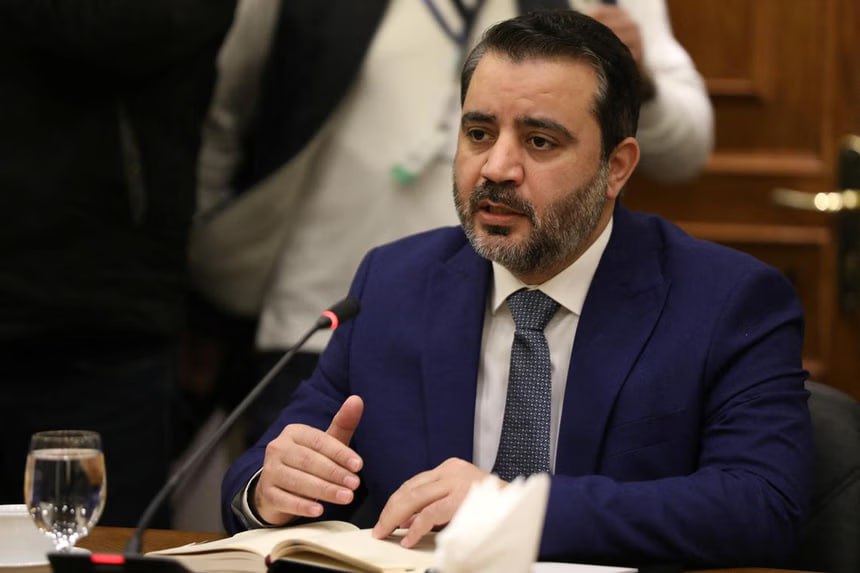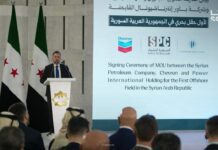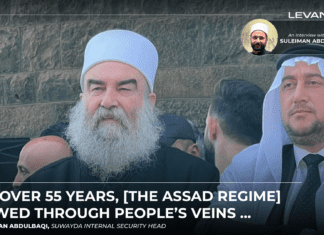
For the first time in its history, Syria is participating in the World Economic Forum (WEF) in Davos, signaling a potential turning point for the war-torn nation as it seeks to reintegrate into the global economy and overcome years of sanctions and conflict.
Syrian Foreign Minister Asaad Al-Shaibani, who is representing the Syrian Caretaker Government (SCG) at the prestigious gathering in Switzerland, expressed optimism about Syria’s future and its commitment to fostering inclusivity and economic growth.
“I will be honored to represent Syria for the first time in its history at the World Economic Forum,” Al-Shaibani said. “I will present our vision for development and the aspirations of the Syrian people, as we transition into a new phase of stability and economic reconstruction.”
The conference, running from January 20 to 24, features key global leaders, including US President Donald Trump, Ukrainian President Volodymyr Zelensky, and government representatives from over 60 countries. Discussions will focus on geopolitical tensions, climate change, economic uncertainty, and technological innovation.
Regional & International Support for Syria’s Transition
Saudi Foreign Minister Faisal bin Farhan, speaking on the sidelines of the forum, expressed cautious optimism about Syria’s progress.
“The new Syrian administration inherited a heavy legacy, and sanctions are a huge burden,” bin Farhan said. “However, there is a great opportunity to move Syria in a positive direction. They say the right things in private and public and are open to working with the international community.”
The Saudi official called for a reevaluation of economic sanctions, urging the international community to support Syria during this transitional phase and assist in rebuilding efforts.
Qatar’s Prime Minister and Foreign Minister Muhammad bin Abdulrahman Al Thani echoed this sentiment, emphasizing Qatar’s confidence in the Syrian people’s resilience and capabilities. “We have great faith in the Syrian people; they are productive and active,” Al Thani said. “We have seen their contributions in other countries, and if things are done correctly, Syria has a promising future.”
Al Thani also highlighted Qatar’s ongoing cooperation with the new Syrian administration to overcome field and diplomatic challenges, including addressing the Israeli occupation and seeking the removal of international sanctions.
EU Considers Easing Sanctions
According to internal EU documents seen by Reuters, European foreign ministers are set to discuss a roadmap for gradually suspending economic sanctions on Syria during their upcoming meeting in Brussels on January 27. The proposed measures include enhancing humanitarian aid, supporting gradual reconstruction, and facilitating travel for Syrian refugees between Europe and Syria during the transitional phase.
A New Era of Inclusion and Diversity
As part of the new administration’s push for inclusivity, Foreign Minister Al-Shaibani stressed the importance of unity and equality among all Syrian communities, including the Kurdish population.
“The Kurds in Syria add beauty and brilliance to the diversity of the Syrian people,” Al-Shaibani said. “Together, we will work to build a country where everyone feels equality and justice.”
The Syrian delegation’s participation at Davos underscores its efforts to rebuild international ties and attract investment for long-term economic growth, amid ongoing challenges in achieving stability and national unity.
A Platform for Global Dialogue
The Davos Forum, known for bringing together world leaders, entrepreneurs, and civil society representatives, presents Syria with an opportunity to engage with key stakeholders and discuss pathways for reconstruction.
The forum will include sessions on economic development, technological advancements, and social justice, providing the SCG with a platform to present its case for investment and support from the global community.
With over 3,000 participants, including representatives from the UN, NATO, and the International Monetary Fund, the forum serves as an essential stage for Syria to showcase its commitment to reform and progress.
A Historic Step
While challenges remain, Syria’s presence at Davos is seen as a crucial step in its reintegration into the global community. The new administration’s willingness to engage with international partners and promote inclusivity has sparked cautious optimism among observers and policymakers.
As the world watches closely, Syria’s future will depend on its ability to navigate the complexities of the post-conflict period and establish itself as a stable, productive member of the international community.








